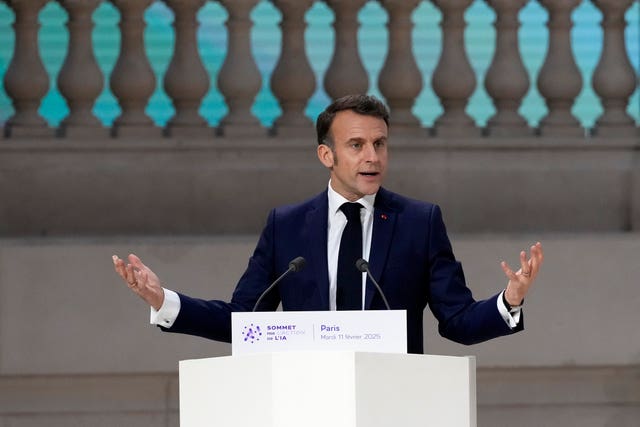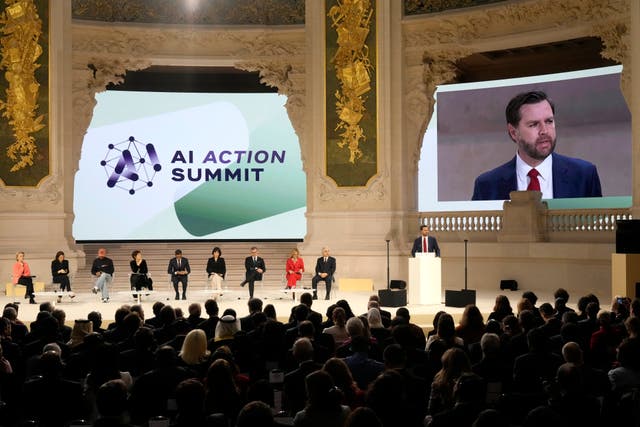UK did not sign AI communique over ‘opportunity and security’ concerns – No 10
Britain declined to back the joint communique because it had concerns about the ‘practical clarity’ of global governance outlined, No 10 said.

The UK refused to sign an international agreement on AI at a major summit in Paris because the declaration does not reflect the Government’s position on “opportunity and security” for the technology, Downing Street said.
Britain declined to back the joint communique because it failed to provide enough “practical clarity” on “global governance” of artificial intelligence, or address “harder questions” about national safety, Number 10 said.
Downing Street denied the move was linked to the US’ rejection of the declaration amid reports that America had expressed concerns over the wording, which is said to include references to “sustainable and inclusive AI”.

But it risks being seen as a snub to French President Emmanuel Macron, who hosted world leaders, tech executives, civil society representatives and academics at the two-day AI Action Summit in Paris.
“This isn’t about the US. This is about our own national interest, ensuring the balance between opportunity and security,” a Number 10 spokesman insisted on Tuesday.
“We didn’t sign the declaration because it did not reflect the UK’s policy positions on opportunity and security.”
Asked whether the Government was worried about upsetting France, a Number 10 spokesman said: “No. We are and always have been clear-eyed on the need to ensure safety is baked into AI from the outset.”
The official added: “We felt the declaration did not provide enough practical clarity on global governance, nor sufficiently addressed harder questions around national security and the challenge AI poses to it.
Earlier on Tuesday, US Vice President JD Vance urged Europe to employ a light-touch approach to regulation of AI in order to foster innovation, but also warned international partners against doing deals with “authoritarian regimes” around the technology.

A spokesman said: “This isn’t about the US. This is about our own national interest, ensuring the balance between opportunity and security.
“We didn’t sign the declaration because it did not reflect the UK’s policy positions on opportunity and security.”
That appeared to be at odds with Mr Macron, who called for greater international co-operation on the technology but also “smart regulation”, saying there was a “need for rules” in its development.
Mr Vance said that too much regulation of AI could “kill a transformative industry just as it’s taking off”, and said European countries should “look at this new frontier with optimism, rather than trepidation”.
While insisting the US was open to working with others on AI, he also appeared to urge other nations not to collaborate with China on AI.
“Some authoritarian regimes have stolen and used AI to strengthen their military intelligence and surveillance capabilities, capture foreign data and create propaganda to undermine other nations’ national security,” he said.
“I want to be clear, this administration will block such efforts full stop.”





